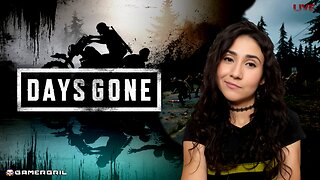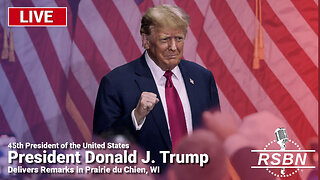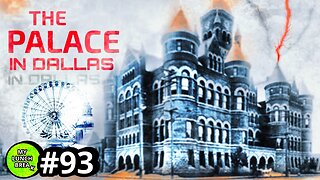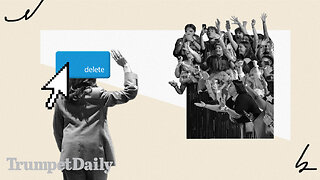RT News - February 19th 2023 - The Weekly
Syria, breaking news: An apartment block has been hit by an Israeli missile strike in central Damascus. Syrian officials say at least five people were killed and 15 others wounded. It was part of a series of strikes on the country. Authorities say most of the missiles were intercepted. It is the first major strikes since the earthquake of 6th February.
-
the Rage Against War: the rally is set to start at the Lincoln Memorial at 12:30pm today
-
Weekly round-up:
-
Ukraine/Russia, Battle for Artyomovsk: The head of the Russian private military company, Wagner Group, shares his insight on the Ukraine conflict and expects that a key city held by Kiev's forces in Donbass will soon be completely surrounded by Russian troops.
India/BBC: India's ruling political party, say the BBC have not paid sufficient duties on income. The BBC's Mumbai and New Delhi offices were raided on suspicion of tax evasion. Despite the BBC having broadcast an inflammatory two-part documentary about India's president Modi, India's tax offices say it is not related.
Last week, George Soros attacked India. In fact India is under the heaviest pressure from the west as she continues to trade with Russia and China.
-
A Pulitzer Prize-winning journalist doubles down on his findings about the US role in sabotaging Russia's Nord Stream pipelines, as he says Washington will never admit its guilt. See also https://t.co/bIAxu30Kgs - interview with Democracy Now.
-
Food and famine: Black Sea Humanitarian Grain Corridor Initiative (QS: known in EU and Britain as "the solidarity corridor" for some reason) Grain and other consumable dry goods have been diverted from the world's poorest countries and ended up as animal feed; in Spain it has been used to feed pigs for their pork and ham delicacies. That's as more than a million in Africa alone are on the brink of famine and thousands already literally starving to death.
-
Ukraine troops are seen wearing the ISIS insignia ("Islamic" state flag) on their apparel in a Danish TV station. (QS I don't know why this surprises anyone. Since at least 2013 a good number of the alphabet soup of terrorists in the employ of the west, shipped out from Syria, via Iraq, to take up mercenary status in Ukraine. The name "Islamic State" is totally rubbish. They shouldn't even be considered Muslims and most completely phoney with all with completely phoney "jihad". In Africa, a great many of the terrorists kidnapping women and murdering the men made their way using the same route. Where ever there is money missing, the west will take advantage and use people to harm others deliberately. Exactly the same thing happened in Chechnya. In the recent conflict and immediately before it commenced last February, hundreds more of those calling themselves Islamic State arrived in Ukraine from Syria)
Catch up on all these stories on this channel or, if you're lucky enough to be in a country which hasn't censored Russian media, the RT website is packed full of news from Russia and around the world www.rt.com Follow RT on Rumble https://rumble.com/c/RTNews
This channel is not monetised and serves only as a cross-reference-able archive of news since censorship against Russia took full hold last year, across the "liberal democracies"
Press "show more" for write ups
-
===========================================
via RT website .........A) --- Anti-war rally announced in Washington
F1) --- Nazi collaborators, dissidents and Soviet functionaries:
The untold story of how Ukraine achieved independence **Feature**
1) --- Survivors rescued 12 days after Türkiye earthquake
2) --- Half of Russians no longer need Western brands – survey
3) --- Putin must turn ‘360 degrees’ – German FM
4) --- West forced to soften anti-Russian UN resolution – Moscow
5) --- EU state ends golden visa era
6) --- ‘Stop being a troublemaker,’ China tells NATO
7) --- White House to hold ‘secret’ talks with Taiwan officials – FT
8) --- Pyongyang fires missile ahead of US-South Korea military drills
8a) --- North Korea warns of ‘unprecedented’ action
9) --- EU ‘indirectly at war’ with Russia – Orban
10) --- Israeli delegation removed from African summit
=============================================
18 Feb, 2023 15:14
A) --- Anti-war rally announced in Washington
The protest will call for peace negotiations in Ukraine and the end of military aid
A large rally dubbed ‘Rage Against The War Machine’ has been announced for Washington DC on Sunday, with thousands set to march to the White House to demand peace in Ukraine and an end to US military funding for Kiev.
The march, organized by the Libertarian and People’s Parties, promises to be the largest US anti-war rally since the protests against the Iraq War in 2003. It is set to feature speakers from across the political spectrum, including former US Senator Ron Paul, former presidential nominee Tulsi Gabbard, and comedian and political commentator Jimmy Dore.
On their website, organizers have laid out the demands they intend to deliver to “warmonger-in-chief Joe Biden.” The points include “not one more penny for war in Ukraine,” the disbandment of NATO, slashing the Pentagon budget, abolishing the CIA, and freeing Julian Assange.
Speaking to FOX News host Tucker Carlson, Tara Reade – one of the speakers due to appear at the rally – argued that Americans are fed up with seeing their government spend almost $100 billion in aid to Ukraine while problems at home are being ignored. “Our infrastructure is falling apart. America is becoming a failed state,” she explained.
Reade also insisted that the US and NATO were responsible for the conflict between Russia and Ukraine, which she said started back in 2014 during the Western-sponsored Maidan coup.
“The speakers are all gathering to ask to abolish NATO, because it’s not a peacekeeping force, it’s an aggressive force that’s been pushing up against the borders of Russia, and now we’re getting closer to the brink of WWIII,” Reade added.
According to the Rage Against War website, the rally is set to start at the Lincoln Memorial at 12:30pm on Sunday, marking almost one year since the start of hostilities between Russia and Ukraine, as well as Presidents’ Day Weekend.
https://www.rt.com/news/571706-anti-war-rally-washington/
==============================================
18 Feb, 2023 20:22
F1) --- Nazi collaborators, dissidents and Soviet functionaries:
The untold story of how Ukraine achieved independence **Feature**
Ukrainian nationalists were persecuted and imprisoned in the USSR but had many allies in circles of power
The end of the Second World War and the defeat of Ukrainian Nazi-collaborators did not put an end to the nationalist movement in the Soviet republic. On the contrary, realizing the futility of underground armed struggle, the "patriots" took the opposite approach. Thus, political leaders in Kiev became unwitting accomplices, who actively continued the work begun in the 1920s to "Ukrainianize” territories inhabited by a mainly Russian population.
Thanks to this, representatives of the Ukrainian national movement began to engage in human rights activities, while simultaneously raising ethnic issues. It resulted in the creation of the People’s Movement of Ukraine party, known as Rukh, which became the driving force that led the country to independence in 1991. Like other nationalists, they played an important role in the collapse of the Soviet Union.
Not Everyone’s Thaw
Repressions against dissidents resumed in the Soviet Union immediately after the end of World War II. In the Ukrainian SSR, this was mainly seen in the struggle against the Organization of Ukrainian Nationalists (OUN), an underground political organization created in the late 1920s, which operated in Galicia and Volhynia. During the War, members of the OUN organized an insurgent army that fought on the side of Nazi Germany. They were aided by sympathetic residents of the Ukrainian SSR’s western regions, which had been annexed in 1939. However, the death of Joseph Stalin and the debunking of his cult of personality put an end to the practice of mass repression. A period of so-called ‘thaw’ began under Khrushchev – a transition from totalitarianism to a milder dictatorship.
Censorship weakened, freedom of speech increased, and there was a relative liberalization of political and public life. As a result, nationally minded Ukrainians gained a certain degree of freedom of expression without the risk of being arrested. However, with the destruction of the OUN underground, they had already become disillusioned with any form of armed struggle. Being mostly intellectuals, they preferred to express themselves not by deeds, but in words.
There were opportunities for this approach. Kiev’s regional committee was headed by Petr Shelest, a native of Slobozhanshchina (the village of Andreevka near Kharkov). Later, during the thaw, he led the Communist Party of the Ukrainian SSR. During his incumbency, the next stage of Ukrainization began in the republic. He switched to the Ukrainian language himself after his appointment as the Ukrainian SSR’s top official. “Suddenly, small restaurants and taverns with ‘Ukrainian’ names appeared (‘Kuren’, ‘Natalka-Poltavka’, etc.) in the vicinity of Kiev, with elements of Ukrainian ethnography in design and service… Signs with the word ‘Ukraine’ began to appear on various shopping establishments and the like,” recalled Ukrainian writer and literary critic Ivan Dziuba.
In the 1960s, in parallel with the next stage of Ukrainization both from above and below, a new constellation of figures began to form in the Ukrainian national movement. Their first meetings were held in a cinema club at the former Kiev Institute of Noble Maidens, which the Bolsheviks had renamed the October Palace. Young writers, artists, musicians, actors, and directors met there. Among them were Ivan Dziuba, Evgeny Sverstyuk, and Alla Gorskaya, who were to become major figures in the Ukrainian movement.
A Turn to Politics
Soon these creative meetings acquired political undertones. In 1962, artist Alla Gorskaya and poet Vasily Simonenko discovered Bykovnya (now the ‘Bykovnyanskie Graves’ National Historical Memorial) in Kiev and its environs, as well as Vasilkov, which was the killing grounds of the NKVD [the country’s central state agency security, which was replaced by the MSS, and then the KGB – RT], where at least 7,000 victims of Stalin’s repressions were shot and buried from 1937 to 1941.
They sent a letter to Kiev's City Council demanding that the existence of these mass graves be made public and turned into a memorial to the victims of Stalin’s terror. At the same time, Ukrainian intellectuals began to oppose what they considered to be the excessive presence of the Russian language in the Ukrainian SSR’s public life, while condemning ideological restrictions on creativity, and so forth. There was no talk about independence yet, but the movement for civil and national rights was constantly strengthening.
1965 became a landmark year. In September, the film Shadows of Forgotten Ancestors by dissident director Sergey Parajanov premiered in Kiev. It tells the story of two young lovers from warring Western Ukrainian families. Before the screening, the director made a speech, and then literary critic Ivan Dziuba, graduate student Vasily Stus, and journalist Vyacheslav Chornovol took the stage.
They announced to the audience that mass repressions were returning, and members of the Ukrainian intelligentsia were being arrested on political grounds. After their performance, 140 viewers signed a petition demanding an end to political persecution. This act led to few consequences, except for the expulsion of students from universities and the dismissal of some young people from work, but it constituted the first public protest staged by the new nationally oriented intelligentsia.
For Our and Your Freedom
The protest of Dzyuba, Stus and Chornovol signified that the Ukrainian intelligentsia’s struggle had moved to a qualitatively new stage. Whereas, earlier, everything had been limited to muted discontent voiced in kitchens and creative circles, in 1965, dissidents began instigating acts of public protest. Three months after the scandalous premiere, Dziuba wrote Internationalism or Russification?
In his book, the author accuses the Soviet leadership of forcibly Russifying Ukrainians, asserting that the party had adhered to the ideology of great-power chauvinism since Stalin’s time. In his opinion, the only way to end the oppression of the Ukrainian people was to return to the Leninist national policy.
The book was mainly distributed in samizdat (banned literature copied and disseminated by readers – RT), but in 1968, it was published in the emigrant magazine Modernity in Munich. This magazine was supported by the Ukrainian Supreme Liberation Council, which was associated with the OUN and its one-time leader, the Nazi collaborator Stepan Bandera. Dziuba’s book found wide resonance in society and provoked a reaction from the authorities – the author was expelled from the Writers’ Union.
However, Petr Shelest, being the de facto head of the Ukrainian SSR and a Politburo member, allowed the book to be published for official use and sent copies to regional party committees for review.
Attempt to Stop the Nationalists
After Soviet troops entered Czechoslovakia in 1968, the Ukrainian intelligentsia feared a new tightening of the screws and prepared a letter of protest against political persecution addressed to the leaders of the USSR – Leonid Brezhnev, Alexey Kosygin, and Nikolay Podgorny, two of whom (Brezhnev and Podgorny) were Ukrainian themselves.
It was signed by 139 figures in culture and the arts. The first among the signatories was director Parajanov.
It is not surprising that rumors concerning an underground terrorist Bandera organization spread in the Ukrainian SSR soon thereafter. Subsequently, some of the most active signatories were arrested. One of the letter’s organizers, Alla Gorskaya, who had discovered secret NKVD execution sites back in 1962, died under strange circumstances. Her father-in-law allegedly struck her with an axe out of personal spite, and then repented and immediately committed suicide. It remains a mystery how an elderly man who walked with a cane after suffering a heart attack could have cut a person down with one blow. One of the unofficial versions attributes the murder to the KGB, which allegedly repeatedly summoned the artist, demanding that she remove her signature from the protest letter.
Despite the murder of Alla Gorskaya, the Ukrainian national movement did not cease its activities. Firstly, an underground culture developed – especially in avant-garde art circles in Kiev, Kharkov, Lvov, and Uzhgorod. Secondly, the Ukrainian Helsinki Group, which was established in 1976, intensified its human rights activities, while simultaneously raising national issues. https://www.radiosvoboda.org/a/26538319.html
Responding to attempts to publicize violations of the Ukrainian intelligentsia’s rights, the Soviet government promptly suppressed the activities of human rights defenders. From 1977 to 1979, dozens of people were arrested and sent to camps under anti-Soviet laws, primarily Article 62, part 1, of the Criminal Code of the Ukrainian SSR on ‘Anti-Soviet Agitation and Propaganda’. Among them were Viacheslav Chornovol, Levko Lukyanenko, and Vasily Stus. The latter’s guilt was acknowledged in court by his own lawyer, Viktor Medvedchuk (later chairman of Ukrainian President Leonid Kuchma’s administration and co-chairman of the ‘Opposition Platform – For Life’ party – RT). In the end, the poet was sentenced to 10 years in prison and 5 years’ exile, which turned out to be a death sentence for him. https://www.radiosvoboda.org/a/28097722.html
While well aware of the possible consequences, the dissidents did not stop fighting for civil and national rights. Not all chose this path, however. Some, having supported the intelligentsia at first, later not only distanced themselves from it, but even actively supported their persecutors. For example, USSR State Prize laureate Ivan Drach criticized Ukrainian nationalists who “come mainly from the western edge of our land.” However, his break with the dissidents did not prevent him from later becoming a figure in the national movement or from participating in the preparation of Ukraine’s Declaration of Independence in 1991.
His colleague in the creative workshop, Dmitriy Pavlichko, was at one time suspected of participating in the Ukrainian Insurgent Army (the combat wing of the OUN). It is not surprising that he is considered one of the patriarchs of the Ukrainian national movement in today’s Ukraine, as he began advocating for war with Russia in 1991. However, in the 1960s and 1970s, he actively supported Western Ukraine’s annexation by the USSR. For example, he is the author of the following verse: “I am the son of a simple logger, Hutsul from the Carpathian Mountains. Fate smiled sweetly on me, In the glow of the Kremlin stars!”
Independence Movement
In 1985, Mikhail Gorbachev came to power in the Soviet Union and initiated Perestroika. During the wave of democratization of social and political life, the ‘People’s Movement of Ukraine for Perestroika’, better known as Rukh (from Ukrainian ‘movement’), was created in February of 1989. This was an extremely motley coalition including both moderate communists and radical nationalists, first headed by Ivan Drach, and later shortened its name to simply ‘People's Movement of Ukraine’.
After some time, leadership of Rukh fell to Viacheslav Chornovol, who enjoyed great authority among Ukrainian dissidents thanks to his ten-year struggle with the Soviet regime. However, there were also sincere communists like Drach and Pavlychko in the party. Many well-known Ukrainian nationalist leaders who played a huge role in the 2014 Maidan coup and the subsequent war in the Donbass launched their political careers in Rukh, including Oleg Tyagnibok, leader of Ukraine’s ultra-nationalist Svoboda party, and Andrey Parubiy, former speaker of Ukraine’s parliament, the Verkhovna Rada.
In the parliamentary elections of March 1990, the Democratic Bloc, which included Rukh, received 111 out of 450 seats, becoming the second largest party in the Supreme Soviet of the Ukrainian SSR. The parliament was controlled by the Communist majority, the so-called ‘Group of 239’, led by Aleksandr Moroz. Nationalists demanding that Ukraine separate from the USSR were supported mainly by residents of Western Ukraine and, partly, Kiev. However, it was Rukh that became the driving force that led Ukraine to independence in 1991.
Events developed at lightning speed. In July of 1990, the Supreme Soviet of the Ukrainian SSR adopted the Declaration of State Sovereignty of Ukraine, but it had no practical consequences. However, in the wake of rumors about the signing of an updated Union Treaty that would fix the Ukrainian SSR as part of the USSR, students from universities in Kiev and Lviv demanded a new parliamentary election and went on hunger strike, dubbed the ‘Revolution on Granite’.
At the height of events on October Revolution Square (now Independence Square), 150 people were taking part in the hunger strike. After two weeks, the head of the Ukrainian SSR’s Council of Ministers, Vitaly Masol, resigned. But despite some opposition successes, by the summer of 1991, prospects for real Ukrainian independence appeared illusory. In a March referendum, more than 70% of the inhabitants of the Ukrainian SSR voted for the preservation of the USSR.
A Logical Outcome
At a festival on August 17, 1991, Rukh’s leader, Chornovol, acknowledged that the probability of independence was extremely slim. However, just two days later, a coup took place in Moscow, when the State Committee for Emergency Situations (GKChP) emerged to prevent the signing of a new Union Treaty, which would have turned the USSR into a confederation. As a result, the Supreme Soviet of the Ukrainian SSR adopted the ‘Act of Declaration of Independence of Ukraine’ on August 24. The activities of the Communist Party of the Ukrainian SSR were subsequently suspended, and then banned.
The collaboration of Ukrainian nationalists, Communist directors, and Soviet-Party nomenclature, amplified by the administrative resources of the Ukrainian SSR’s vertical power structure, made it possible to rally public support. On December 1, 1991, a new referendum was held, in which more than 90 percent of residents voted for an independent Ukraine. Ironically, in Ukraine’s first presidential elections, which were held simultaneously, residents voted, in essence, for the preservation of the Ukrainian SSR by electing party apparatchik Leonid Kravchuk, while nationalist candidates Viacheslav Chornovol and Levko Lukianenko couldn’t garner even a third of the votes between them.
Moreover, in 1992, Chornovol and Rukh had already begun to actively promote the federalization of Ukraine “on the principles of nationalism and national unity.” Vladimir Cherniak, a member of Rukh’s Central Committee, stated that the transition to federalism “will accelerate the process of state-building, as it will free the central authorities from solving regional problems, making it possible to focus their attention on global issues.”
However, such initiatives received no response from the population, and disagreements between party members almost resulted in a split. The old constellation of nationalists that had led Ukraine to independence began to exit the political scene. In their place, more radical organizations emerged that demanded total Ukrainization and war with Russia. Among them were the Ukrainian National Assembly, which had its own armed subdivision dubbed the Ukrainian Nationalist Self-Defense, as well as the Social Nationalist Party of Ukraine, which was renamed Svoboda in 2004.
By Alexander Nepogodin, an Odessa-born political journalist, expert on Russia and the former Soviet Union.
https://www.rt.com/russia/571662-ukranian-nationalists-in-ussr/
=============================================
18 Feb, 2023 16:08
1) --- Survivors rescued 12 days after Türkiye earthquake
More than 46,000 people confirmed dead in the aftermath of the earthquakes which struck Türkiye and Syria
Three survivors, one of whom was a child, were successfully rescued from the rubble of a building in Türkiye’s Hatay province on Saturday, according to the Anadolu news agency.
However, a reporter from the Turkish television channel NTV said that one of the three –understood to be a child– had later died in hospital, nearly 300 hours after the back-to-back earthquakes rocked Türkiye and neighboring Syria.
“We heard shouts when we were digging today an hour ago,” Atay Osmanov, a member of the rescue team, told Reuters. “When we find people who are alive we are always happy.”
Reports from the scene showed how rescue workers requested complete silence as they surveyed rubble where survivors are thought to be, using electronic sound detectors. One worker was heard asking survivors to, “Take a deep breath if you can hear my voice.”
Rescue teams are continuing to search for survivors following the February 6 natural disaster, a mammoth task made more difficult by the passage of time, and with more than 264,000 residential apartments estimated to have been destroyed.
Türkiye has so far reported the deaths of 40,642 people as of Saturday, while Syria has confirmed more than 5,800. Both figures are expected to rise and, in Syria’s case, sharply. Neither country has offered an estimate of how many people remain unaccounted for.
Within Türkiye, anger is growing at alleged malpractice in the development of residential buildings – such as the supposedly “earthquake-proof” Ronesans Residence in Antakya, in the south of the country, which collapsed during the earthquake, killing hundreds, including former Chelsea footballer Christian Atsu.
Türkiye has pledged to investigate any such allegations, and authorities last Friday arrested the developer of Ronesans Residence, Mehmet Yasar Coskun, as he attempted to board a flight to Montenegro, according to the Anadolu news agency.
https://www.rt.com/news/571711-survivors-rescued-turkey-quake/
=============================================
19 Feb, 2023 05:16
2) --- Half of Russians no longer need Western brands – survey
A growing number of consumers are turning to domestic manufacturers to replace foreign products after the exit of Western companies
Nearly half of Russians have successfully found domestic substitutes for foreign products made unavailable due to sanctions, RIA Novosti reported on Wednesday, citing a poll by NielsenIQ research company.
According to the findings, over the past year, 47% of Russians “have completely switched to locally produced brands or began to buy products of local production more often.” About a third of respondents did not change their preferences and continued to buy the same brands they used to before 2022, and 17% switched to new brands, but also of foreign production.
Respondents offered several reasons for turning to local brands. Over half of them said they did it to support domestic producers, while 20% pointed to an inability to find foreign analogues at a reasonable price. Another 10% stated that they could not find foreign goods that match the quality and characteristics they value, but see them in Russian products.
After the start of Moscow’s military operation in Ukraine, many major Western brands announced their withdrawal from the Russian market and the suspension of investment and imports. According to economists from Switzerland’s University of St. Gallen, more than 1,400 companies have decided to quit Russia over the past year, including electronics manufacturers, retailers, automakers, clothing and food brands, hotels, banks, and restaurant chains. Yet, despite concerns that the trend would damage the Russian economy, it spurred development in domestic industries.
Analysts say the current situation presents a good opportunity for growth for Russian producers. Earlier this month, Russian President Vladimir Putin said the departure of Western brands has meant “our domestic manufacturers received unique opportunities for development and we must take advantage of them.” Putin added that the country’s producers have been given a chance to occupy niches, which until recently were closed to them due to competition from global players.
Industry experts warn that the only concern now is whether domestic manufacturers are ready to meet increased demand, and urge companies to invest in expanding their production capabilities.
“If production facilities cannot meet the growing demand, it is necessary to invest in development; saving money may lead to a desire to simplify the process, and this is fraught with the loss of quality,” Alexei Popovichev, head of the RusBrand association of manufacturers, told RIA.
https://www.rt.com/business/571514-russians-western-brands-survey/
==============================================
18 Feb, 2023 20:11
3) --- Putin must turn ‘360 degrees’ – German FM
Russia’s former president has ridiculed Annalena Baerbock’s grasp of geometry
Russian President Vladimir Putin must “change by 360 degrees” in order for Ukraine to be safe, German Foreign Minister Annalena Baerbock told the Munich Security Conference. In other words, former Russian president Dmitry Medvedev pointed out, he must continue doing exactly what he is doing.
Appearing alongside American Secretary of State Antony Blinken and Ukrainian Foreign Minister Dmitry Kuleba on Saturday, Baerbock was asked whether there is “any chance of Ukraine being safe in the long term” if Putin remains in office.
“If he doesn’t change by 360 degrees, no,” the German FM replied. https://twitter.com/Levi_godman/status/1626959960700600323
-
“It’s hilarious that Europe is run by such ignorant people,” former Russian President Dmitry Medvedev wrote on social media. “There is no doubt, connoisseur of geometry, that it will be so,” he mocked. “We are holding our ground.”
Baerbock, Blinken, and Kuleba spoke at a panel entitled ‘Visions for Ukraine,’ in which the three attempted to sketch out an image of what the country might look like post-conflict. All three agreed that to get there, Russia must unconditionally withdraw from territory claimed by Kiev, which includes the Russian region of Crimea and the four formerly Ukrainian regions that voted to join Russia in September.
Echoing previous statements from Kiev, Kuleba said that a “long vision” of victory for Ukraine involves not only a Russian withdrawal, but “compensations for the damage inflicted, accountability for perpetrators of crimes, and most importantly, Russia must change.”
“As long as Putin is in power, we will be in trouble,” he claimed, adding that his removal or retirement would lead to “a period of opportunity for all of us.”
Ukraine’s Western backers are not unanimous on the topic of regime change. While US Deputy Secretary of State for Political Affairs Victoria Nuland – who largely orchestrated the pro-Western coup in Kiev in 2014 – has explicitly called for this outcome, French President Emmanuel Macron said on Friday that such an approach is doomed to fail.
“When I hear a lot of people advocating for regime change, I would just ask them: for which change? Who’s next? Who is your leader? How to implement it? We experienced several times in the past decade a lot of regime change in a lot of countries. It’s a total failure,” he told the Munich conference.
https://www.rt.com/news/571714-baerbock-putin-turn-360/
=============================================
18 Feb, 2023 14:11
4) --- West forced to soften anti-Russian UN resolution – Moscow
American cowboy blackmail and arm-twisting, however, have yet to be canceled, Russia’s envoy to the UN said
In order to gain the widest possible support, Western countries are now trying to remove any "sharp corners" from the text of their draft anti-Russia resolution for the UN General Assembly, says Moscow’s First Deputy Permanent Representative to the UN, Dmitry Polyansky.
The diplomat stated in a Telegram message that the resolution will likely be proposed to the UN for a vote next week on the anniversary of the start of Russia’s military operation in Ukraine. Officially, the draft resolution is meant to address the "principles underlying a comprehensive, just and sustainable peace in Ukraine."
However, Polyansky has pointed out that the true intent of Western politicians is to use the anniversary as "an informational occasion for new attacks on Russia" and to prove that Moscow is isolated at the UN.
"Their main problem is that we are not isolated. And pushing through anti-Russian texts is becoming increasingly difficult," he noted, adding that the West is having great difficulties in trying to "remove all the ‘sharp corners’ and to ‘round off’ everything as much as possible" in the text of the resolution.
Polyansky also stated that in order to garner the most support and "not scare anyone away," and to guarantee that their efforts are not in vain, the West has also essentially "muzzled the Ukrainians" so that they don’t ruin the resolution.
"And now they just sadly watch how the text of the draft becomes more and more vague," said the diplomat, adding that despite the West’s efforts, there are still many countries that are unwilling to support the resolution.
He remarked, however, that "American cowboy blackmail and arm-twisting have not been canceled," and that the presumed result of the vote may yet change.
The diplomat’s comments come as the UN General Assembly is set to hold an emergency session on February 22, intended to address the ongoing military conflict between Russia and Ukraine. It is during this session that Western countries intend to propose their resolution, which, according to news agency RIA, which cited sources who have seen the drafts, echoes the "peace plan" of Ukrainian President Vladimir Zelensky.
Among the ten points of Zelensky’s initiative are requirements to release all prisoners of war and to restore the "territorial integrity of Ukraine." Moscow, however, has dismissed this "peace formula" as "illusory" and unacceptable, Foreign Minister Sergey Lavrov saying it showed that Kiev was not ready for serious dialogue.
https://www.rt.com/news/571704-un-anti-russia-resolution/
=============================================
18 Feb, 2023 15:09
5) --- EU state ends golden visa era
Portugal scraps right of non-Europeans to claim residency in return for investment
Portugal's authorities have announced a bulky package of economic measures that includes the termination of one of the most sought-after 'golden visa' schemes in Europe, which provides non-EU nationals with Portuguese residence in exchange for buying real estate or for other investments.
Lisbon's decision to halt issuing new golden visas in return for such investments, which had given those who could pay residency status and access to the EU’s borderless travel zone, was announced on Thursday by the country’s Prime Minister Antonio Costa.
The step is aimed at “fighting against price speculation in real estate,” the premier said, adding that the crisis was now affecting all families, not just the most vulnerable.
The 'golden visa' program had attracted €6.8 billion ($7.3 billion) in investment since its launch in 2012, with the bulk of the money reportedly going into real estate. To get Portuguese residency one had to invest over €280,000 (over $300,000) in real estate or at least €250,000 (some $268,000) in the arts. Once a person obtained residence, they were then required to spend only seven days a year in the country to maintain their right to free movement across the whole bloc.
The just-announced package of measures also includes a ban on new licenses for Airbnbs and some other short-term holiday rentals, except in remote locations.
Rents and house prices have soared in Portugal, which is currently ranked one of the poorest countries in Western Europe. In 2022, the monthly wages of more than 50% of Portuguese workers hardly reached €1,000 ($1,100), whereas rents in Lisbon alone surged 37%. All the while the country's 8.3% inflation rate has only exacerbated its problems.
It's not clear yet when the measures, which are worth at least €900 million ($962.19 million), will come into effect. According to the PM, some would be approved next month and others will be voted-on by lawmakers.
Portugal’s decision follows one by Ireland, which a week earlier had scrapped its golden visa scheme or 'Immigrant Investor Programme,' which used to offer Irish residence in return for a €500,000 ($540,000) investment or three years of an annual one-million-euro ($1.1 million) investment in the country.
Meanwhile in Spain, a bill has been submitted to congress to scrap its iteration of the 'golden visa by purchase of property' scheme, as it's had a considerable impact on housing prices there, pushing nationals out of the market, especially in the big cities and most popular tourist destinations.
Introduced in 2013, the program enables foreigners to obtain a Spanish residence permit by buying real estate worth at least €500,000 in the country.
https://www.rt.com/business/571693-portugal-golden-visa-program-halt/
==============================================
18 Feb, 2023 13:25
6) --- ‘Stop being a troublemaker,’ China tells NATO
Beijing’s envoy to the UN is blaming the Ukraine crisis on the US-led bloc’s “constant eastward expansion”
The main reason for Europe’s current “security plight” is NATO’s insistence on pursuing absolute security and its political exclusion of specific countries, China’s ambassador to the United Nations Zhang Jun has claimed.
Speaking at the UN Security Council briefing on Friday, the envoy noted that the ongoing crisis in Ukraine is the result of NATO’s continued expansion towards the east and urged the US-led military bloc to abandon its Cold War mentality and to stop being “a troublemaker.”
He also pointed out NATO’s “self-contradictory” behavior, where it promotes itself as a “defensive alliance” while at the same time constantly seeking to “breach its geographic confines and expand its agenda, stoke division and tensions, create fears and confrontations.”
“Pursuing absolute security and political exclusion and containment by force against a specific party is the very crux of the reason why Europe is in the security plight,” he said. “Europe, and even the whole world, will be caught up in greater turmoil” unless NATO changes its mindset, the diplomat added.
Zhang reiterated China’s calls for a ceasefire between Russia and Ukraine, and urged them to start peace negotiations as soon as possible. He also suggested that the US, EU and NATO should sit down with Moscow for a “comprehensive and in-depth dialogue” based on the principle of security indivisibility.
“They should discuss how to build a balanced, effective, and sustainable security architecture and realize common security,” he said, adding that it is crucial to stop any attempts to “hype up” the conflict in order to avoid further escalation and expansion.
Meanwhile, Beijing has seen its own relations with the US deteriorate to new lows over the recent downing of an alleged Chinese spy balloon earlier this month. The US has announced it would be shutting down military communications with China after the incident and imposed sanctions on implicated Chinese companies and institutions.
Beijing, in turn, has denied the allegations, arguing the balloon was a civilian airship. It has nevertheless vowed retaliation over the incident and has reduced its military and diplomatic ties with the US. Beijing has also repeatedly criticized Washington for allowing a number of US officials to make repeated visits to the self-governing island of Taiwan, which China considers to be part of its sovereign territory.
As the White House has also continued to greenlight arms sales for Taipei’s military, Beijing imposed sanctions on US arms manufacturers Raytheon and Lockheed Martin.
https://www.rt.com/news/571700-un-china-nato-troublemaker/
============================================
18 Feb, 2023 10:57
7) --- White House to hold ‘secret’ talks with Taiwan officials – FT
The Asian island’s foreign minister and national security adviser will reportedly visit Washington while a US delegation travels to Taipei
A Taiwanese delegation that is reportedly set to arrive in the US over the weekend will take part in “secret talks” with White House officials, the Financial Times has claimed, citing anonymous sources.
According to the outlet, the meetings will be part of a special diplomatic dialogue intended to remain private so as to avoid provoking a reaction from China, which considers Taiwan part of its territory. The Taiwanese delegation will reportedly be led by Foreign Minister Joseph Wu and National Security Adviser Wellington Koo.
FT sources claimed the delegation will be hosted by US Deputy National Security Adviser Jon Finer as well as Deputy Secretary of State Wendy Sherman.
The existence of the “longstanding diplomatic channel,” first reported by the Financial Times two years ago, has not been officially confirmed or denied by either US or Taiwanese officials. Nonetheless, the outlet claims that the format is being used to address security issues amid Beijing’s increasingly “assertive” stance around the self-governing island.
Meanwhile, the US is said to have sent several of its own delegations to Taiwan, despite heightened tensions between Washington and Beijing. The Pentagon’s top China official, Michael Chase, arrived on the island on Saturday to meet with counterparts in the Taiwanese government, according to several media outlets. Neither Washington nor Taipei have officially confirmed the trip.
Additionally, a congressional delegation led by California Representative Ro Khanna is planning a trip to Taiwan over the weekend, with the intended purpose of “bolstering ties between Silicon Valley and the Taiwanese semiconductor industry,” according to Khanna’s office.
Continued contact between American officials and representatives of the Taiwanese government has long been a hot button issue for Beijing, especially after former US House Speaker Nancy Pelosi made a trip to the island back in August. China insists that Taiwan is part of its sovereign territory under the “One China” policy, and has repeatedly demanded that foreign nations maintain no direct ties with Taipei and avoid granting legitimacy to the island’s government.
Nevertheless, Washington has proceeded to arrange numerous meetings with Taiwanese officials and continues to greenlight arms sales for Taipei’s military. On Thursday, Beijing imposed sanctions on US arms manufacturers over the deals.
https://www.rt.com/news/571696-us-taiwan-secret-talks/
===========================================
18 Feb, 2023 13:57
8) --- Pyongyang fires missile ahead of US-South Korea military drills
North Korea had warned of an ‘unprecedented’ response to allied exercises
North Korea has fired a long-range ballistic missile from its east coast into the sea according to the South Korean military, a day after warning Washington and Seoul that it would issue a “strong” response to upcoming military exercises between the two allied nations.
Seoul didn’t immediately report where the missile landed, but Japan’s vice minister for defense, Toshiro Ino, said it was estimated to have splashed down in waters around 125 miles to the west of Oshimo Island off the coast of Hokkaido, inside Japan’s exclusive economic zone.
According to Japan’s Prime Minister Fumio Kishida, Tokyo is maintaining close dialogue with Seoul and Washington following the incident, which he described as “an act of violence that escalates provocation towards the international order.”
Figures from within the South Korean military said the long-range weapon was fired from an area in Sunan, where Pyongyang International Airport is located, at around 5.22pm local time on Saturday.
The launch, which was North Korea’s first since January 1, comes a day after Pyongyang issued a stern rebuke to the announcement of upcoming military drills involving South Korea and the United States.
The DPRK vowed an “unprecedentedly persistent, strong” response to the collaborative drills planned for the coming weeks. Pyongyang has previously referred to such exercises as a “dress-rehearsal” for a full-scale invasion.
The military drills, which are due to take place over the coming weeks, will feature computer-simulated responses to North Korean nuclear threats, as well as live-fire training and expanded field exercises.
Pyongyang’s ballistic missile and nuclear programmes are outlawed under resolutions of the United Nations Security Council, but the North Korean leadership has maintained that weapons development is a necessary deterrent to oppose Washington’s “hostile policies”.
The North Korean military tested a record number of intercontinental ballistic missiles (ICBMs) last year, which it claims are capable of striking anywhere within the United States. The country also passed a law last year which authorizes the launch of pre-emptive nuclear strikes under certain conditions.
https://www.rt.com/news/571701-north-korea-missile-february/
================
17 Feb, 2023 18:55
8a) --- North Korea warns of ‘unprecedented’ action
Pyongyang said planned US-South Korea military drills will plunge the region into a “grave vortex” of escalating tensions
North Korea will take “unprecedentedly persistent and strong counteractions” if South Korea and the US go ahead with planned military exercises, the Foreign Ministry in Pyongyang said on Friday.
In a statement published by the Korean Central News Agency (KCNA), the ministry said it regards plans for drills by Washington and Seoul on the Korean Peninsula to be “preparations for an aggressive war.”
It stated that the US and South Korea are set to hold more than 20 rounds of war games next month, as well as conducting the largest-ever example of field exercises between the two nations. “This predicts that the situation in the Korean Peninsula and the region will again be plunged into the grave vortex of escalating tension,” the statement continued.
Earlier on Friday, South Korea’s deputy minister of national defense policy, Heo Tae-keun, announced that Seoul and Washington will conduct computer-simulated training in mid-March, which they say is defensive in nature and designed to counteract a North Korean nuclear threat. Heo added that field exercises will also be held, and that they will be larger than those from recent years.
Pyongyang warned earlier this month that the expansion of Washington’s military exercises with Seoul are pushing tensions towards an “extreme red line.”
North Korea conducted a record number of missile launches last year, including multiple long-range ballistic tests. It described them as a response to increasingly large-scale US-South Korea war games, which it views as dress-rehearsals for a full-scale invasion. Pyongyang has often responded to perceived acts of aggression by bolstering its own weapons-testing program.
Seoul has expressed renewed concerns about North Korea’s nuclear weapons program, after it introduced a new law last year which authorizes the launch of a preemptive nuclear strike under certain conditions.
https://www.rt.com/news/571664-north-korea-us-unprecedented-action/
===========================================
18 Feb, 2023 19:50
9) --- EU ‘indirectly at war’ with Russia – Orban
Hungarian leader vows in annual state-of-the-nation speech to maintain economic ties with Moscow
Europe has become “immersed in war” due to its policy of supplying arms and military intelligence to Ukraine throughout its conflict with Russia, Hungarian Prime Minister Viktor Orban said on Saturday, addressing his country’s refusal to send weapons to Kiev.
Speaking at his annual state-of-the-nation speech in Budapest, Orban reiterated that Hungary won’t fall in line with other EU member states by supplying military aid to Ukraine, its northeastern neighbor, adding that European leaders appear to be “sleepwalking” into an expanded conflict.
“It started with helmets and now we are already at the delivery of tanks, in the future also of airplanes, and before long we will hear about the so-called peacekeeping units,” Orban said.
“Europe is getting immersed in war, in reality they’re already indirectly at war with Russia,” he added.
Orban, who has served as Hungary’s Prime Minister since 2010, stated that Hungary will “maintain economic relations with Russia and recommend this to our allies” even as Western leaders continue to impose sanctions on Moscow.
He also said that while Hungary remains a proud member of both the EU and NATO, the military bloc must remain a defensive alliance and not be used to “collectively attack a third country” – adding that a “sovereign Ukraine between Hungary and Russia” is in Budapest’s best interests.
The premier maintained that Hungary has shown “great humanitarian aid” for Ukrainian refugees, and said he'd like the Russia-Ukraine conflict to end immediately but that he does not have the influence within NATO and the EU to get that done, as “everyone there is on the side of war except us.”
While he also discussed issues such as inflation and domestic political affairs, around half of Orban’s hour-long speech was centered around policy matters involving Moscow and Kiev.
There will be no resolution in Ukraine, Orban concluded, until lawmakers in both Moscow and Washington sit at the negotiation table. Until then, only more fighting – and the threat of a world war – awaits.
https://www.rt.com/news/571712-hungary-orban-russia-eu/
============================================
18 Feb, 2023 21:01
10) --- Israeli delegation removed from African summit
Israel blamed the incident on South Africa and Algeria, but African Union officials say they were just following protocol
A senior Israeli diplomat and her delegation have been expelled from the African Union’s annual summit in Ethiopia. Video footage showed the Israelis being escorted out by security guards.
Sharon Bar-li, the deputy director of the Israeli foreign ministry’s Africa division, was removed from the premises in Addis Ababa along with her team on Saturday. The Israeli Foreign Ministry condemned the expulsion, arguing that Israel is an accredited observer at the African Union’s annual meeting, and Bar-li had her paperwork in order.
“Israel looks harshly upon the incident in which the deputy director for Africa, Ambassador Sharon Bar-Li, was removed from the African Union hall despite her status as an accredited observer with entrance badges,” spokesperson Lior Hayat said.
Hayat blamed “a small number of extremist countries such as Algeria and South Africa” for the decision to boot Bar-li, claiming that these nations are “driven by hatred and controlled by Iran.”
-
https://twitter.com/WallaNews/status/1626888300094017537
-
Israel was granted observer status at the African Union in 2021, although the decision was bitterly opposed by some members of the 55-country bloc, including South Africa and Algeria. The union responded by setting up a committee to re-evaluate Israel’s status, which is due to give its recommendations at this year’s summit.
A spokesperson for South African President Cyril Ramaphosa denied any responsibility, while an African Union spokesperson Ebba Kalondo told Reuters that the union was expecting Israel’s ambassador to Ethiopia and the African Union, Aleli Admasu, instead of Bar-li.
Regardless, South Africa backed the decision to expel the diplomat. “It’s not about South Africa or Algeria, it’s an issue of principle,” Ramaphosa’s spokesperson told Reuters. “Until the AU takes a decision on whether to grant Israel observer status, you cannot have the country sitting and observing.”
https://www.rt.com/news/571715-israel-ambassador-african-union/
==============================================
-
 18:52
18:52
Bright Insight
14 hours agoThe Great Pyramid HIDDEN Chamber is Now a Conspiracy
132K83 -
 1:11:58
1:11:58
The Kirk Minihane Show
14 hours agoThe 420 Show- September 28 , 2024
67.5K6 -
 4:11
4:11
Nitrocross
1 day agoThe Edge with Tanner Foust | Episode 1
95.4K7 -
 40:33
40:33
Alexis Wilkins
1 day agoBetween the Headlines with Alexis Wilkins: Eric Adams, Tariffs, Nathan Wade MISSING & more
65.3K13 -
 1:16:08
1:16:08
Steve-O's Wild Ride! Podcast
2 days ago $2.11 earnedBrandon Novak and Steve-O Avoid Discussion Of Sobriety - Wildride #234
71.2K19 -
 4:15:30
4:15:30
GamerGril
18 hours agoWHORDE MASTER RETURNS | DAYS GONE
60.2K11 -
 16:14:02
16:14:02
Right Side Broadcasting Network
3 days agoLIVE REPLAY: President Trump Delivers Remarks in Prairie du Chien, WI - 9/28/24
395K182 -
 2:59:48
2:59:48
Jewels Jones Live ®
1 day ago“TARGETING TRUMP’S LIFE” | A Political Rendezvous - Ep. 93
129K39 -
 21:20
21:20
MYLUNCHBREAK CHANNEL PAGE
21 hours agoThe Palace in Dallas?
121K58 -
 59:56
59:56
Trumpet Daily
1 day ago $13.48 earnedSwooning for Kamala Didn’t Work - Trumpet Daily | Sept. 27, 2024
97.8K50